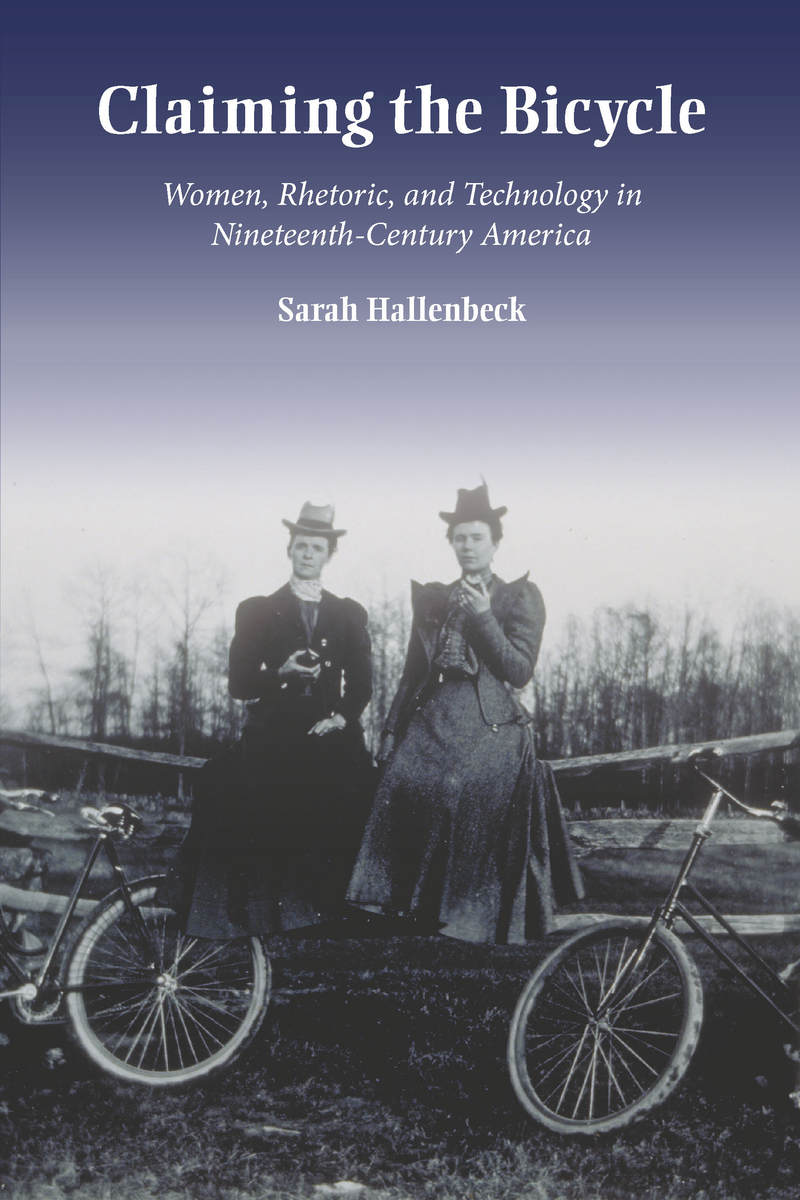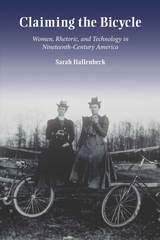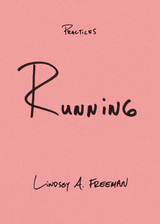Claiming the Bicycle: Women, Rhetoric, and Technology in Nineteenth-Century America
Southern Illinois University Press, 2016
Paper: 978-0-8093-3444-5 | eISBN: 978-0-8093-3445-2
Library of Congress Classification GV1057.H35 2016
Dewey Decimal Classification 796.6082
Paper: 978-0-8093-3444-5 | eISBN: 978-0-8093-3445-2
Library of Congress Classification GV1057.H35 2016
Dewey Decimal Classification 796.6082
ABOUT THIS BOOK | AUTHOR BIOGRAPHY | REVIEWS | TOC
ABOUT THIS BOOK
Although the impact of the bicycle craze of the late nineteenth century on women’s lives has been well documented, rarely have writers considered the role of women’s rhetorical agency in the transformation of bicycle culture and the bicycle itself. In Claiming the Bicycle, Sarah Hallenbeck argues that through their collective rhetorical activities, women who were widely dispersed in space, genre, and intention negotiated what were considered socially acceptable uses of the bicycle, destabilizing cultural assumptions about femininity and gender differences.
Hallenbeck describes the masculine culture of the “Ordinary” bicycle of the 1880s and the ways women helped bring about changes in this culture; asserts that women contributed to bicycle design, helping to produce the more gender-neutral “Safety” bicycle in response to discourse about their needs; and analyzes women writers’ uses of the new venue of popular magazines to shape a “bicycle girl” ethos that prompted new identities for women. The author considers not only how technical documents written by women bicyclists encouraged new riders to understand their activity as transforming gender definitions but also how women used bicycling as a rhetorical resource to influence medical discourse about their bodies.
Making a significant contribution to studies of feminist rhetorical historiography, rhetorical agency, and technical communication, Claiming the Bicycle asserts the utility of a distributed model of rhetorical agency and accounts for the efforts of widely dispersed actors to harness technology in promoting social change.
Hallenbeck describes the masculine culture of the “Ordinary” bicycle of the 1880s and the ways women helped bring about changes in this culture; asserts that women contributed to bicycle design, helping to produce the more gender-neutral “Safety” bicycle in response to discourse about their needs; and analyzes women writers’ uses of the new venue of popular magazines to shape a “bicycle girl” ethos that prompted new identities for women. The author considers not only how technical documents written by women bicyclists encouraged new riders to understand their activity as transforming gender definitions but also how women used bicycling as a rhetorical resource to influence medical discourse about their bodies.
Making a significant contribution to studies of feminist rhetorical historiography, rhetorical agency, and technical communication, Claiming the Bicycle asserts the utility of a distributed model of rhetorical agency and accounts for the efforts of widely dispersed actors to harness technology in promoting social change.
See other books on: Bicycle | Claiming | Cycling | Nineteenth - Century America | Technology
See other titles from Southern Illinois University Press






























